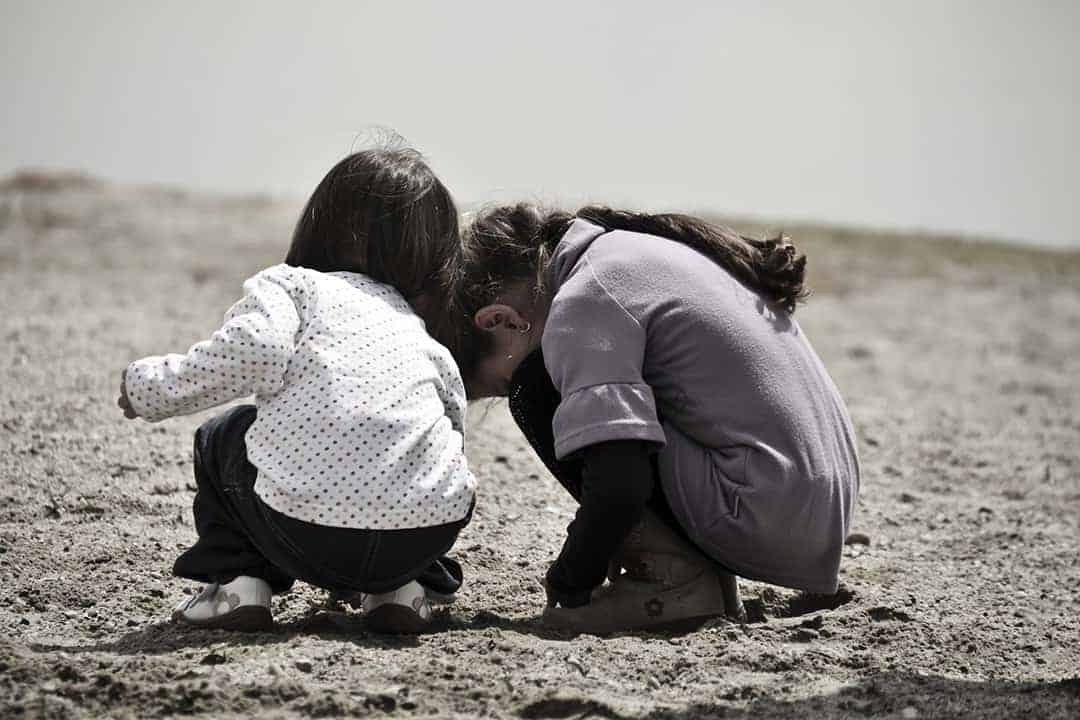According to Mind, one in four people in the UK experience a mental health problem, or combinations of mental health problems each year. These range from depression to eating disorders, PTSD (Post-traumatic stress disorder) to phobias. Muslims are no exception to these problems, they are rife in the ummah even though they are not well diagnosed, or even that widely accepted within many Muslim communities.
As an Ummah we are suffering. The Prophet Muhammad (saw) said, “the ummah is like one body, when a part of it aches, we all ache”. Problems such as the refugee crisis, oppression, and social injustice are ubiquitous within the ummah, and they are just some of the circumstances which have led to the epidemic. This month, we at Inspirited Minds are saying it’s #TimeToTalk (2nd February). Time to talk about refugee mental health. Whilst the politics are an important factor to the issue, we need to separate the politics from the long lasting effects of war, and turmoil. Everyone shouts about the dictatorships, but where is the noise for the oppression of the mind? We want you to shout with us this year. To start you off, here are five things that we, as an ummah, need to do.
- Talk and educate ourselves about the oppression in order to defend their oppression. This will help us to better look after the mental health of our oppressed brothers and sisters, because we know what has happened and what is actually going on. Whether they are displaced Muslims from Burma or Syria, their worries and fears should be our worries and fears. We should make an effort to reduce stigma and stereotypes around being a refugee and welcome them into our communities. We should pray for them as we would want to be prayed for, and do the best we can to make things easier for them.
- Talk locally, talk volunteering. In a religion where even a smile is regarded as charity, imagine the reward for talking to someone and ensuring their mental wellbeing is being cared for. Additionally, even a simple conversation, can ease another Muslim’s stress. Try and find a community action group you could join which arranges support for refugees. Refugees need to know the ummah support them and could feel more comfortable talking to fellow Muslims. Ask how someone is doing, let them tell you what they’re going through and, most importantly, listen. No one is expecting you to come up with a solution over night. Just listen.
- Talk about the taboos. Topics like suicide are stigmatised in our communities, and PTSD is unheard of – this makes it worse for the Muslims within the ummah who suffer from such conditions. These are not topics we need to shy away from, they are legitimate health problems which are having deep, significant impacts on our communities. Refugees have been through a lot so it’s important they know we can help them through the tough issues they themselves may not understand or know how to express.
- Talk about hope. Our Ummah faces continuous problems and attacks, and we often believe there is no way out, but we must remember and spread the idea that there is hope with every negative and Allah has promised the believers success if we stick together. When suffering with mental health conditions, it is easy to feel like there is no way out, so imagine what it would feel like for a refugee who has been through such an awful lot accompanied by a hellish journey? We need to understand, as an Ummah and on an individual level that there is a way out of everything – with the right support and attitude, and we need to stamp that fact home.
- Talk about the solutions. We need to get as much of the community involved as possible, that includes mosques, Islamic schools and classes, community socials and on many more on a wider level. Adiyaat and donations go along way, these shouldn’t be belittled, but it’s also important to remember how far educating oneself and others around us can also travel. Other approaches such as counselling, different types of trauma therapy, and medication are all valid tools in helping general mental health problems as well as those more prone to refugees. We should be more aware of this, so when you are in a relative situation, you already know what to recommend or suggest.
Mental health problems are often downgraded, and are watered down more so when it comes to refugees because of their experience of physical and political brutality appears to be of more significance, but this needs to change. It is the long lasting effects of such experiences that is making their lives more difficult.
We must defeat the stigma, and be the voice for our brothers and sisters who have suffered for so long in silence, and there is no better way to get heard than making it #TimeToTalk wherever you are on the 2nd of February. We hope that you will be joining us and the rest of the nation on this potential life changing day.




